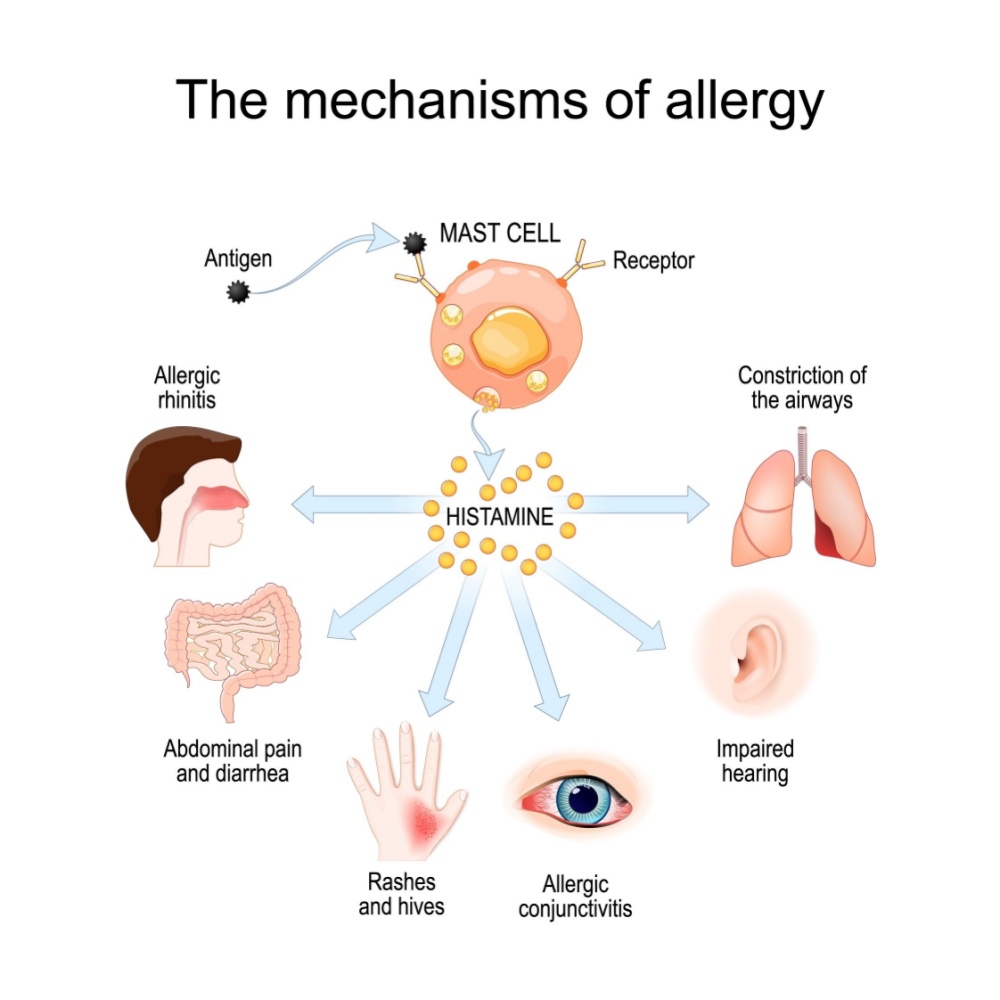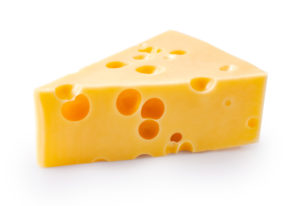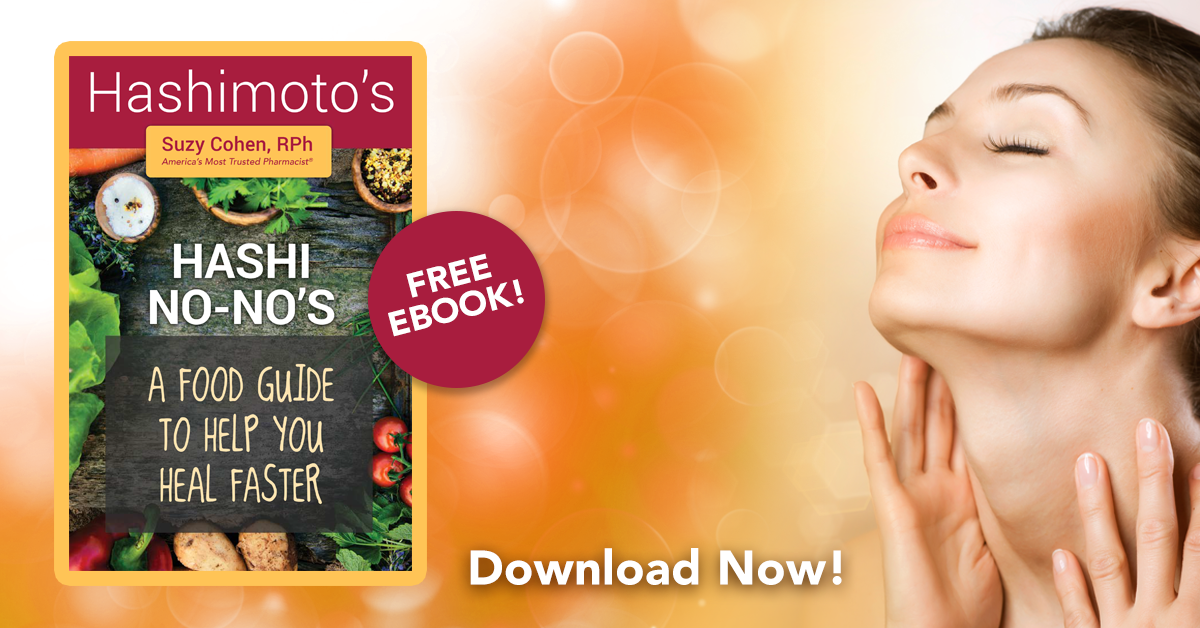What's On This Page?
ToggleThis whole article was inspired by my General Contractor Greg, who I helped feel better with one simple tip. I told him to stop drinking kombucha every day. It dawned on me that many of you think fermented foods are good for you. Another friend of mine Missy, gets MIGRAINES several times a month and she eats a lot of fermented foods including tempeh.
I have another friend who loves to drink wine with his dinner, and he’s very prone to experiencing migraines. All these foods and drinks have one thing in common which I’ll share with you today. They are all fermented, so they are all high in histamine. They can cause all kinds of problems in your body. You will want to download my book on this topic entitled Hashi No Nos.
Fermented Foods: Why It’s a Bad Idea
Many of you are eating fermented foods and drinking kombucha under the advice of well-meaning practitioners or bloggers or magazine articles you’ve read. I want to work with you today if you have any autoimmune disease (Hashimoto’s, Graves’ disease), hypothyroidism, insomnia, gastrointestinal disorders, chronic pain, fatigue, depression, anxiety, skin rashes or brain fog.
Please take a moment to read my other article, 8 Strategies To Reduce Histamine And Ease Hashimoto’s & Autoimmune Disorders.
I see many of you getting heavily medicated for symptoms that are spawned from what you eat or drink. Today’s focus is about foods high in histamine, namely fermented foods. I’m talking about foods that are intentinoally fermented, these are especially high in histamine.
Later on in this article I will tell you 13 symptoms that might be caused by these types of foods and drinks, right now though, I’d like to talk about Chinese food because I love it, and I don’t react but many of YOU do! I will now tell you why.
To show you just how high in histamine fermented foods can be compared to plain foods, I want to bring your attention to a study from 1989. A group of researchers noticed that the symptoms of ‘Chinese Restaurant Syndrome’ (where you experience headache, flushing, diarrhea, stomach upset and/or sweating after eating Chinese food) were similar to those of histamine intolerance.
Histamine Is Sometimes in Chinese Food
The researchers set out to measure the levels of histamine in a range of Chinese foods to see whether histamine could be the culprit. They found that regular Soy Sauce had 220 mcg (micrograms) of histamine per gram, while Tamari (a gluten free type of fermented Soy Sauce) contained a whopping 2,392 mcg (micrograms) histamine per gram. That’s more than 10 times that of the non-fermented version.
By the way, if you have anxiety, palpitations, panic attacks, diarrhea, stomach upset, insomnia, pain or migraines or headaches, I want you to know that both forms of soy sauce are extremely high in glutamate and can trigger you. You may be reacting to MSG (monosodium glutamate), or to the histamine spike or to both!
Anyway, my point is made. Fermented soy sauce is dramatically higher in histamine than regular soy sauce, and both are high in glutamate, a known excitotoxin. Puts a damper on your next sushi meal go easier on the soy okay or do like me and eat spicy mayo instead. By the way, Your Favorite Condiment Can Make You Sick.
For what it’s worth, high-protein foods like a steak, chicken or seafood do not contain much histamine when they are completely fresh, but the longer they are stored the more histamine they contain. Throw the leftovers out after 24 hours. Cured meats, processed fish, alcoholic drinks, aged cheese, vinegar, eggs, aged cheese are all high in histamine.
This is a VERY important article, 8 Strategies To Reduce Histamine And Ease Hashimoto’s & Autoimmune Disorders.
Good time to tell you that I have a background in Functional Medicine for 2 decades years, and a Registered Pharmacist for over 30 years! So my approach is to think big picture… and I also tend to think 2 steps ahead on the enzymatic pathways. So let’s say you have one problem, and then you eat (or drink) one new food (or drug), and then you develop 4 new uncomfortable other problems.
It’s awful right? No one will put 2 and 2 together.
Conventional medicine’s answer will prescribe you 4 drugs for these 4 new problems and you’ll be diagnosed with all kinds of new “diseases.” But I will ponder what caused those 4 new problems for you, I don’t ask you (or myself) what 4 drugs did they give you for those 4 new “problems.”
To me, it’s a very easy, sequential way to be. When I printed the shorter version of today’s article in 90 plus newspapers nationwide, my inbox got flooded with questions, so I’ve expanded my article for you, to answer what you will probably want to know too. Fermented foods are not healthy for all of you and can cause more than 4 problems if you don’t connect the dots. Are you shocked?
Intestinal Microflora
The rationale is that fermented foods and beverages encourage healthy bacteria to form in the food itself, which theoretically adheres to your own gut lining and then replenishes your intestinal microflora with “probiotics.” As you sip your kombucha, I have to wonder if these bacteria actually stick to your lining?
Are the organisms healthy for you, or do they serve as food for opportunistic pathogens?
Does it spawn more cytokine production than it’s worth?
As you read this today, I want you to ask yourself: Do I react well or badly after eating fermented foods?
The logic in recommendations to restore friendly gut bacteria to your microbiome is important, it’s essential. I’m all for a healthy gut! I’ve been an advocate for probiotic supplementation for 2 decades, before it became vogue.

But the tight junctions in your gut aren’t really closing up after you eat tofu or drink vinegar (kombucha), and if it IS happening, your zonulin levels should come down. … go ahead, show me one study to prove that. Sauerkraut, kombucha, yogurt, tempeh, and kefir (drinkable yogurts) and many more “functional” foods are pitched for health benefits.
Honestly, things are getting out of control. These foods and drinks aren’t right for everyone. They cause really uncomfortable side effects for some of you like bloating, belching and flatulence. If you don’t know it’s from what you’re eating or drinking, doc is going to prescribe a new drug for your “Irritable Bowel Syndrome” so be careful.
Site after site, expert after “expert” recommending fermented foods as if it’s the next superfood. Three people I know bought fermentation equipment to do this at home. None of them are feeling better. I need to put an end to the nonsensical idea that eating fermented foods is healthy, and I’m aiming this article at people with autoimmune disorders. Conditions like
- Hashimoto’s
- Graves’ disease: Read more about GRAVES’ DISEASE
- MS (multiple sclerosis)
- Sjogren’s
- Lupus
- Scleroderma
- Psoriasis
- Rheumatoid
The colonization of germs in your small intestine will increase histamine levels and therefore symptoms of these autoimmune diseases. Fermented foods and drinks are very high in histamine. Eating high-histamine foods can cause histamine levels to skyrocket within minutes to hours and it will accumulate to a sickening level if you cannot break it down fast enough and it accumulates.
Throw out leftovers because they are high in histamine.
People who are deficient in a natural enzyme called DAO (diamine oxidase) will become intolerant to histamine and sick from these foods. You may unknowingly have a genetic polymorphism or SNP in your DAO gene, thus you may not be making enough DAO enzyme to begin with.
Because people with autoimmune disease have circulating immune complexes in their bloodstream, due to increased intestinal permeability (leaky gut), they are often told to eat fermented foods. Or they read it online somewhere.
The Internet is a black hole of bad information. So because fermented foods are high in histamine, I say to avoid them if you have an autoimmune disorder. This is the very population that is most often told to eat fermented foods! For more on this topic, read my other article: Allergies and Your Genes: Histamine, Autoimmunity and DAO SNPs.
Fermented foods are, by definition, a food that is undergoing the process of turning into alcohol through the use of yeast, bacteria, fungus (mold), or enzymes that break down the food.
It’s food that’s starting to rot a little, right?
For example, it’s milk that’s starting to rot and turn into cheese. Tempeh is fermented soy and sauerkraut is fermented cabbage. Grapes become alcohol and milk becomes cheese. Ferment a sausage and you’ll get salami. Now, I’m not trying to take all your fun away. I know you love some of those foods and so do I. I’m not saying they are bad at all! I’m saying that for some people with certain diseases, that those foods my be a trigger because of the high histamine content.

But all of you who eat fermented foods (like many vegans do) or drink fermented drinks… you know who you are… you are still the ones who are miserable with plaguing symptoms, and if you trace it back in your mind, there may be a correlation to what you are eating and drinking.
This is what I want you to think about and I’d like you to keep a food diary with as much detail as you can to see if you can track flare-ups to fermented foods.
I sometimes eat fermented foods myself and I used to be interested in fermentation. So much so, while I was in California on business, I made time to attend The Fermentation Festival in Santa Rosa, California.
So this isn’t to say that fermentation is bad, and in a normal healthy person it is just fine, these foods are delicious. Sam and I enjoy them all the time without concern. I’m sure many of you do, but there’s a subset of folks that I’m talking to today and you are the ones I’m trying to help. At this point, I’d blurt out that FDA disclaimer that all licensed practitioners have to spit out like zombies:
“Ask your doctor if it’s right for you…” but honestly, most practitioners believe the propaganda that fermented foods are the next best thing to sliced bread… they don’t think it through that these items could be extremely high in histamine, and if they do realize it, they probably assume the fermentation benefits (ie bacteria in the food) is worth the risk you get from increasing histamine. Probably none of them would even test you to see if you have a DAO SNP (or ask for our 23andme report).
So that’s the pervasive message all over the place that I’m educating you about. Fermented foods contain a lot of histamine, and/or make your body produce more histamine. And it’s a bad thing if you get too much. Histamine accumulates to an even more sickening level if you cannot break it down fast enough and it builds up. Histamine is a pro-inflammatory cytokine that adds fuel to the fire in a person with chronic health conditions. For example:
1) Histamine causes blood vessels around your brain to swell, increasing pressure in your head. This affects thinking.
2) Histamine will trigger migraines and cluster headaches, this is common in people who drink wine. I wrote a book which discussed histamine and headaches in depth. See “Headache Free: Relieve Migraines, Clusters, Menstrual and Lyme Headaches.”
3) Histamine will cause or increase discomfort of skin rashes, urticaria and cause you to get diagnosed with “idiopathic urticaria.”
4) Histamine is commonly high in people with food sensitivities, Celiac, ulcerative colitis and Crohn’s.
5) If you have SIBO (small intestinal bacterial overgrowth) this often leads to elevations in histamine, as well as unusually high serum B12 (methylcobalamin), and it’s scary but some autoimmune experts are actually telling people with SIBO to go eat more fermented foods.
6) Histamine doesn’t break down if you are deficient in a natural human-produced enzyme called DAO (diamine oxidase).
7) Your blood pressure may drop.
8) Your throat may feel a tightening sensation, due to the mild swelling of your facial and mouth tissues. It’s termed angioedema.
9) You may experience heartburn, indigestion or acid reflux.
10) You may feel weaker, or chronically fatigued.
11) Changes in heart rate, you may experience faster or slower heart beat (tachycardia or bradycardia).
12) You may feel irritable, or not yourself… even confused and weirded out.
13) Nasal or sinus congestion.
14) Itchy eyes (or watery and red).
Keep all this in mind when you eat fermented foods, which are high in histamine.
Your body can’t handle all the histamine overload.
Your body makes histamine itself for the typical immune response, there are actually two types of histamine. I recommend you elminate all of these for at least 3 months, if not indefinitely.
Fortunately, there are many genuine ways to help suppress the bad bacteria and support the good ones, such as with probiotics, and there are ways to address histamine intolerance and insufficient enzyme production. There are ways to take care of yourself if you have autoimmune disorders. Feel free to use my search box (upper right hand corner of this page), this is why I archive hundreds of articles at my site.
The following is a list of fermented foods (there are others not listed here)
- Wine or any alcohol including beer and spirits (brandy, vodka, gin, etc)
- Sardines, tuna, mackerel or herring
- Buttermilk
- Cottage cheese
- Cured meats including chorizo, salami, turkey
- Aged cheese esp. Manchego, Parmesan, Bleu, Gruyere and Roquefort, etc
- Kefir (drinkable yogurt), including coconut kefir
- Kimchee
- Vinegar
- Condiments that have vinegar like ketchup, mustard and relish
- Chocolate (because the cacao seeds must be fermented, dried, then roasted)
- Sauerkraut
- Soy or soy sauce
- Kombucha
- Buttermilk
- Yogurt
- Anything pickled or any fermented foods not listed here

Suzy Cohen, has been a licensed pharmacist for over 30 years and believes the best approach to chronic illness is a combination of natural medicine and conventional. She founded her own dietary supplement company specializing in custom-formulas, some of which have patents. With a special focus on functional medicine, thyroid health and drug nutrient depletion, Suzy is the author of several related books including Thyroid Healthy, Drug Muggers, Diabetes Without Drugs, and a nationally syndicated column.



